DSC
CHAIRS
CHAIR (EAST)
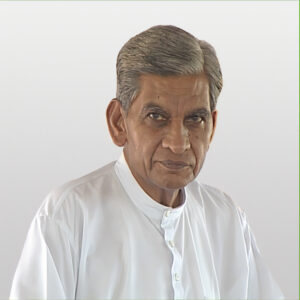
Rev. Prof. Dr. Prem Saran Satsangi
Chairman, Advisory Committee on Education Dayalbagh Educational Institute (Deemed to be University), Agra, India
Revered Prof. Prem Saran Satsangi, the father of systems movement in India, having graduated with a B.Sc. in Electrical Engineering from the Banaras Hindu University (presently Indian Institute of Technology, Banaras), pursued M.S from the Department of Electrical Engineering, the Michigan State University, USA. Prof. Satsangi earned his Ph.D. in the field of Socio-economic system from the University of Waterloo, Canada. Rev. Prof. Satsangi took voluntary retirement from the Indian Institute of Technology, Delhi to serve as the honorary Director (CEO), Dayalbagh Educational Institute (a deemed university).
Prof. Satsangi has generalized the application of physical systems theory in his systemic research from “real” physical systems to a variety of “conceptual” socioeconomic-environmental systems. He has succeeded in extending physical systems theory as a rudimentary modelling framework for complete “creational” system, including not only physical processes, but also “esoteric” mental and spiritual processes.
On May 18, 2003 a gathering in Dayalbagh of about 25,000 representatives of the approximately half a million members (followers) of Radhasoami Faith (“Radhasoami Satsang” Dayalbagh) from all over India and abroad, proclaimed Prof.Prem Saran Satsangi unanimously as their leader for lifetime to lead the Radhasoami Satsang Community.
Prof. Prem Saran Satsangi, the eighth spiritual leader of the Radhasoami Faith, Dayalbagh, is the Chairman of the Advisory Committee on Education (ACE), Dayalbagh Educational Institute.
CO-CHAIR (WEST)
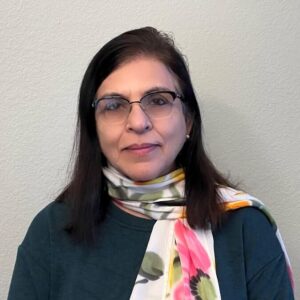
Prof. Dr. Sarup Mathur
Arizona State University
TMPE, Arizona
USA
Sarup R. Mathur is the Ryan C. Harris Professor of special education in the Division of Educational Leadership and Innovation at Mary Lou Fulton Teachers College (MLFTC) at Arizona State University. She is nationally recognized for her work in the field of emotional and behavioral disorders. She obtained her master’s degree in psychology and education from WTC, Dayalbagh Agra, India, and her master’s and Ph.D. in special education from Arizona State University. Professor Mathur has been the coeditor of the special issue of Education and Treatment of Children for more than 20 years. She has authored/co-authored more than 100 publications on topics related to professional learning communities, effective strategies for children with emotional and behavioral disorders, transition and re-entry of juvenile offenders, systemic change and interagency linkages, and ethical decision-making.
Professor Mathur is a former secretary and president of the Division of Emotional and Behavioral Health and the past president of Teacher Educators for Children with Behavioral Disorders. She has served as principal investigator (PI) or co-principal investigator (CoPI) for several federally funded projects. As a Co-PI for the In-STEP program funded by USAID, she provided professional learning experiences to visiting scholars from India, who were enrolled in a 3-month residency program in MLFTC. More recently, she has been co-leading the INSITE project funded by the National Science Foundation, where she is working toward integrating STEM-based applications in a tablet-based transition curriculum to increase the post-release employability of youth involved in juvenile justice.
ORGANIZERS
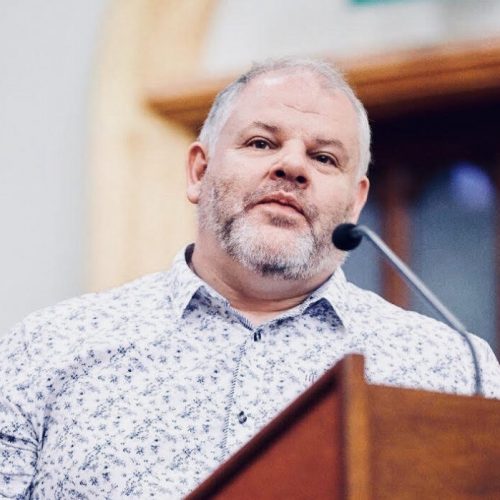
Prof. Dr. Andrew Davies
Birmingham University, Birmingham, UK
Although my interests are varied, I am fundamentally a biblical scholar and literary critic who works on the reception and impact of the Bible, particularly in the contexts of its influence on society, its handling by Pentecostals and Evangelicals globally and its interpretation in music and the arts. My PhD, in the field of biblical ethics, provoked my interest in the role of the Bible as a resource for moral thinking and led me to a lifelong fascination in why people think religion and sacred texts are so important to them in making lifestyle choices and how faith commitments impact our interactions with and contributions to society and the public and political spheres.
Recently this has resulted in many opportunities to reflect on the distinctive contribution that faith brings to leadership both in organisations and in civic life. I led the UK government’s pilot project for the professional development of religious leaders from 2019-20 and continue to work with UK government departments including the Ministry of Housing, Communities and Local Government and the Foreign, Commonwealth and Development Office to promote the understanding of religion in policy-related contexts. At the same time I have advised and supported a variety of faith communities (particularly in the UK, India and Australia) on their political and social engagement strategies.
As an experienced academic project manager, I have led a variety of educational research and development projects for the University of Birmingham, including initiating what has since become our flagship interdisciplinary education activity, ‘The Birmingham Project’, where I was responsible for developing and sustaining the University’s relationships with major international businesses such as IBM, Jaguar LandRover, PwC and KPMG. I have managed funded research and engagement projects worth well over £2.5m, including a major, three-year AHRC-supported project, ‘Megachurches and Social Engagement in London’ (2013-16), which investigated the social engagement activities of some of the UK’s largest and most prominent churches.
I now combine leadership of the Cadbury Centre and public engagement work with directing the University of Birmingham’s Master of Public Administration in Faith-Based Leadership and MA in Religion, Politics and Society programmes, whilst continuing to write and teach on cultural-critical approaches to the Bible, contemporary forms of Christian worship and expression (most notably including Pentecostalism) and more recently on faith-based (especially but not only Evangelical Christian) engagement in the fields of culture and social and public policy.
Prof. Dr. K. Soami Daya
Dayalbagh Educational Institute, Deemed University, Agra, India
Coming Soon.
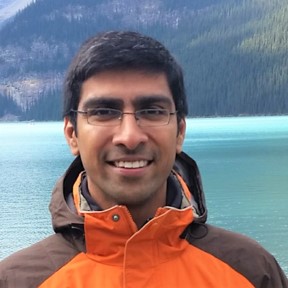
Prof. Dr. Apurva Narayan
University of Waterloo, Waterloo, Canada
Dr. Apurva Narayan is Assistant Professor in the Department of Computer Science at the University of British Columbia and Adjunct Assistant Professor in the Systems Design Engineering Department, University of Waterloo, Canada. He obtained Bachelor’s degree in Electrical Engineering from Dayalbagh Educational Institute in 2008 and Ph.D. from the Department of Systems Design Engineering, University of Waterloo in 2015. Dr. Narayan’s research interests lie at the interface of data science, safety-critical systems, systems theory, machine learning, and artificial intelligence. He has authored more than 35 peer-reviewed publications in ACM and IEEE conferences and journals and has been invited to deliver guest lectures at premier universities around the world. He currently leads the Data Science and Artificial Intelligence Group jointly at both UBC and UW. He was the lead organizer of the Landmark First International Conference on Dayalbagh Science of Consciousness, DSC 2019 jointly organized by DEI and University of Waterloo under their MoU for joint research in September 2019. He was conferred the Young Systems Scientist Award by Systems Society of India at QANSAS 2017 and Varshney Award at QANSAS 2019.
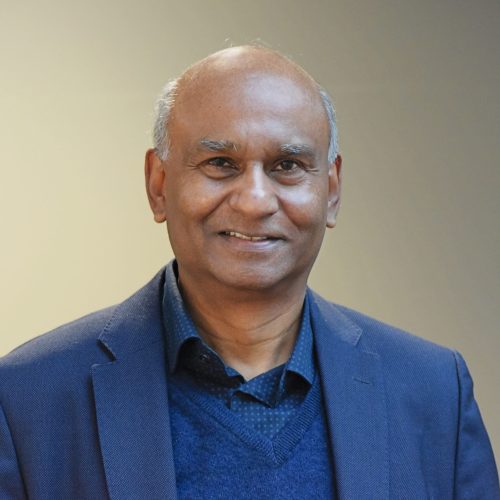
Prof. Dr. Anand Srivastava
Co-ordinator, DSC
Kiel University, Kiel, Germany
Anand Srivastav is Professor at the department of Mathematics at Kiel University sice 1997.
He was born in Dayalbagh, Agra. After primary education in Dayalbagh and school education in
Germany, he studied Mathematics and Physics at the University of Münster, Germany, where he received the Master degree in Mathematics as well as in Physics. In 1988 he received the doctoral degree Dr.rer.nat. from the University of Muenster
with a thesis in Fuctional Analysis. From 1988 – 1993 he was Assistant Professor at the Research Institute for Discrete Mathematics, University of Bonn, Germany, and from 1993 – 1994 Visiting Professor at the Univ. of Minnesota, New York University and Yale University.
In the years 1994 – 1996 he worte his Habilitation Thesis in the area of Combinatorial Optimization at the Free University and the Humboldt University of Berlin. Since 1997 he is a Professor and chair for Discrete Optimization at Kiel University.
His research interests are Combinatorial Optimization, Combinatorial Games, Discrete Harmonic Analysis and Discrepancy Theory, Randomized and Derandomized Algorithms, but also applications of optimization in Marine and Life Sciences.
He was awarded the stipend for habilitation work by the German Research Foundation in 1995, a research stipend by the Japan Society of Science in 1997, the Indo-German Guestprofessorship in 2013 at the IIT Delhi by the Max-Planck-Society, and the DEI Distinguished Alumi Award of the Dayalbagh Educational Institute, Deemed to be Unversity, Agra, India, in 2019.
He published more than 80 papers in peer-reviewed journals and conference proceedings, and accumulated a third-party funding for his research of approx. 5 Million Euros.
NSC
CHAIRS
CHIEF-PATRON

Rev. Prof. Dr. Prem Saran Satsangi
Chairman, Advisory Committee on Education Dayalbagh Educational Institute
(Deemed to be University), Agra, India
Revered Prof. Prem Saran Satsangi, the father of systems movement in India, having graduated with a B.Sc. in Electrical Engineering from the Banaras Hindu University (presently Indian Institute of Technology, Banaras), pursued M.S from the Department of Electrical Engineering, the Michigan State University, USA. Prof. Satsangi earned his Ph.D. in the field of Socio-economic system from the University of Waterloo, Canada. Rev. Prof. Satsangi took voluntary retirement from the Indian Institute of Technology, Delhi to serve as the honorary Director (CEO), Dayalbagh Educational Institute (a deemed university).
Prof. Satsangi has generalized the application of physical systems theory in his systemic research from “real” physical systems to a variety of “conceptual” socioeconomic-environmental systems. He has succeeded in extending physical systems theory as a rudimentary modelling framework for complete “creational” system, including not only physical processes, but also “esoteric” mental and spiritual processes.
On May 18, 2003 a gathering in Dayalbagh of about 25,000 representatives of the approximately half a million members (followers) of Radhasoami Faith (“Radhasoami Satsang” Dayalbagh) from all over India and abroad, proclaimed Prof.Prem Saran Satsangi unanimously as their leader for lifetime to lead the Radhasoami Satsang Community.
Prof. Prem Saran Satsangi, the eighth spiritual leader of the Radhasoami Faith, Dayalbagh, is the Chairman of the Advisory Committee on Education (ACE), Dayalbagh Educational Institute.
PATRON

Prof. Dr. Prem Kumar Kalra
Director
Dayalbagh Educational Institute
(Deemed to be University), Agra, India
Prof. Prem Kumar Kalra joined as Director of Dayalbagh Educational Institute (Deemed University), Dayalbagh, Agra on Sep 14, 2013. Prior to this, Prof. Kalra had rendered a yeoman service to the Indian Institute of Technology, Jodhpur, Rajasthan as its Founder Director. He was Head of the Dept. of Electrical Engineering at IIT Kanpur from Jan. 2006 to Dec. 2008 and served as Dean, Resource Planning and Generation at IIT Kanpur from
2001 to 2004.
Prof. Kalra received his education upto the graduate level in Dayalbagh, Agra. Having graduated from the DEI Engineering College in 1978 and, after a short teaching stint there, he joined IIT Kanpur to pursue my M.Tech. On its completion in 1982, he joined the University of Manitoba in Canada for his Ph.D. programme which he completed in 1988.
After teaching in the U.S. some time, Prof. Kalra joined the Dept. of Electrical Engineering at IIT Kanpur in 1988, where he launched a research programme in the front area of Artificial Intelligence, making significant contributions in the fields of Neural Networks. Prof. Kalra was one of the principal architects of the 3i-neworks (a consortium of IIT Kanpur, IDFC and IIM Ahemdabad), formed with the objective of creating an intellectual
critical mass in matters of national policy.
Prof. Kalra has significant achievements to his credit in research, innovation, industry interaction and regulatory area and have published 5 books and over 150 publications in research journals. He has also been assigned the positions of Chairman, board members of the several committees by the various Institutions in repute including IITs.
ORGANIZERS
CONVENER
Dr. Prem Sewak Sudhish
DEI, Agra, India
CONVENER
Dr. Ankit Sahai
DEI, Agra, India
CO-CONVENER
Prof. Dr. Anita Lakhani
DEI, Agra, India
CO-CONVENER
Dr. Ashok Yadav
DEI, Agra, India
IN COLLABORATION WITH SYSTEMS SOCIETY OF INDIA
PRESIDENT
Prof. Dr. Prem Kumar Kalra
Indian Institute of Technology, Delhi
(IIT-D), India
VICE-PRESIDENT
Prof. Dr. C. Patvardhan
DEI, Agra, India
SECRETARY
Prof. Dr. D. Bhagwan Das
DEI, Agra, India